My Campaigns
Norwich to Tilbury Pylons
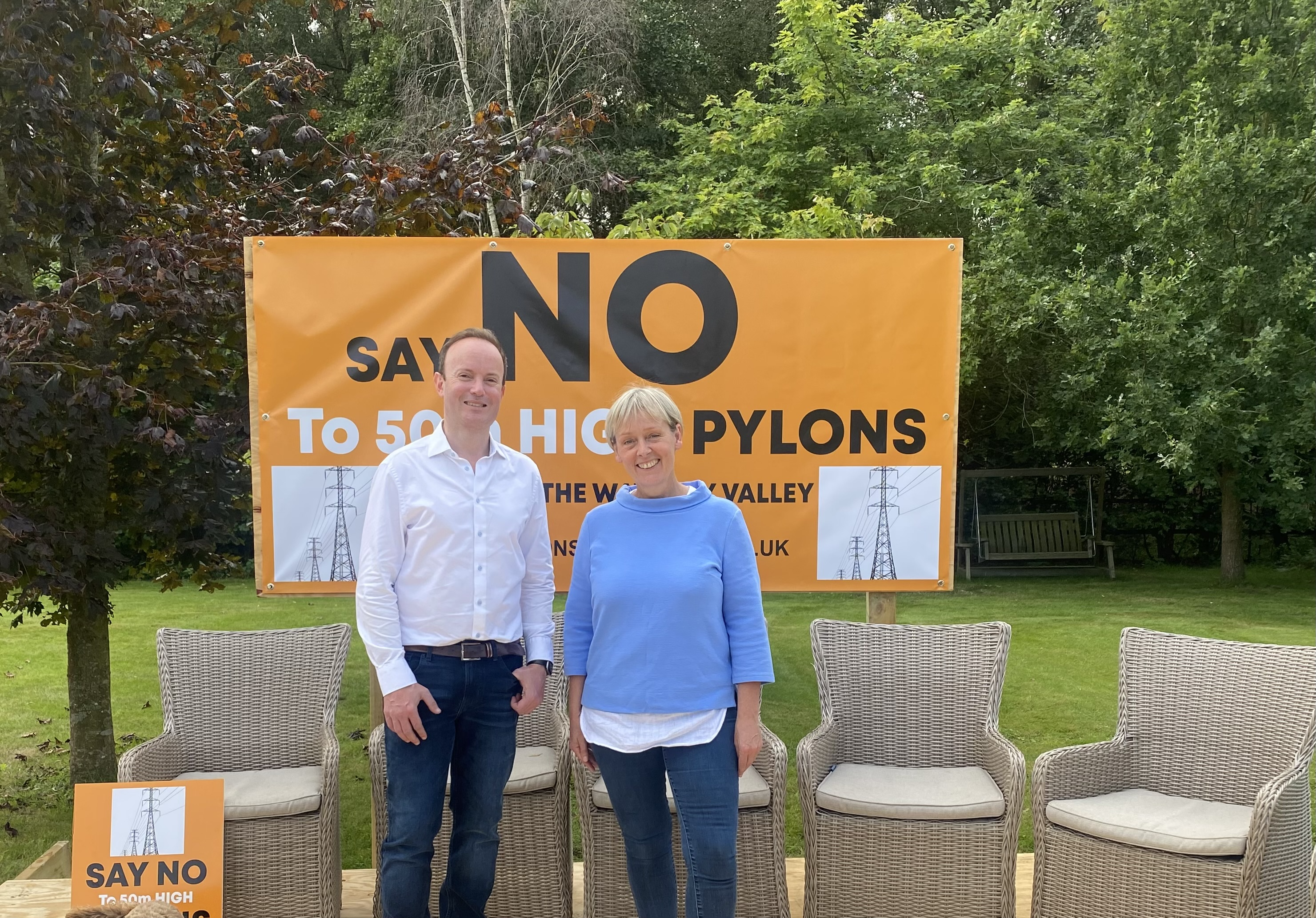
I’ve been at the forefront of the campaign to find alternatives to the Norwich to Tilbury Pylon proposals and explore an ‘off-shore grid’ since 2021. Since 2018, I’ve held the responsibility for responding to Nationally Significant Infrastructure Projects in Suffolk. I know how to apply pressure to the likes of National Grid and how to change schemes like these new pylons. At my instigation, through my role at Suffolk County Council, we have recently seen two key reviews. The first of these is the Hiorns Review, commissioned jointly with Essex and Norfolk County Councils, which clearly sets out that the energy projects on which the need for Norwich to Tilbury is predicated will not be delivered on schedule. Therefore, Norwich to Tilbury is unlikely to be required until 2035, rather than 2030. This gives us time to look properly at the High Voltage Direct Current (HVDC) alternatives set out in the recent National Grid ESO review. This presents both on-shore and off-shore HVDC alternatives which, when looked at in tandem with the Hiorns Review, could be delivered in time and replace the pylons proposals.
In addition, with Norfolk County Council, I have ensured a proper landscape study was conducted into the special qualities of the Waveney Valley. Pressure like this has now seen proposals from National Grid to ‘underground’ through the Waveney Valley. This is a small victory and you can read more of my comments and about the special qualities of the Waveney Valley here. However, we must go further. We must pause the proposals for the Norwich to Tilbury Pylons and properly explore the HVDC alternatives. My experience dealing with this sort of scheme is second to none and I will not give up the fight to deliver a better solution for Norfolk, Suffolk and our nation.
Local Banking Hubs
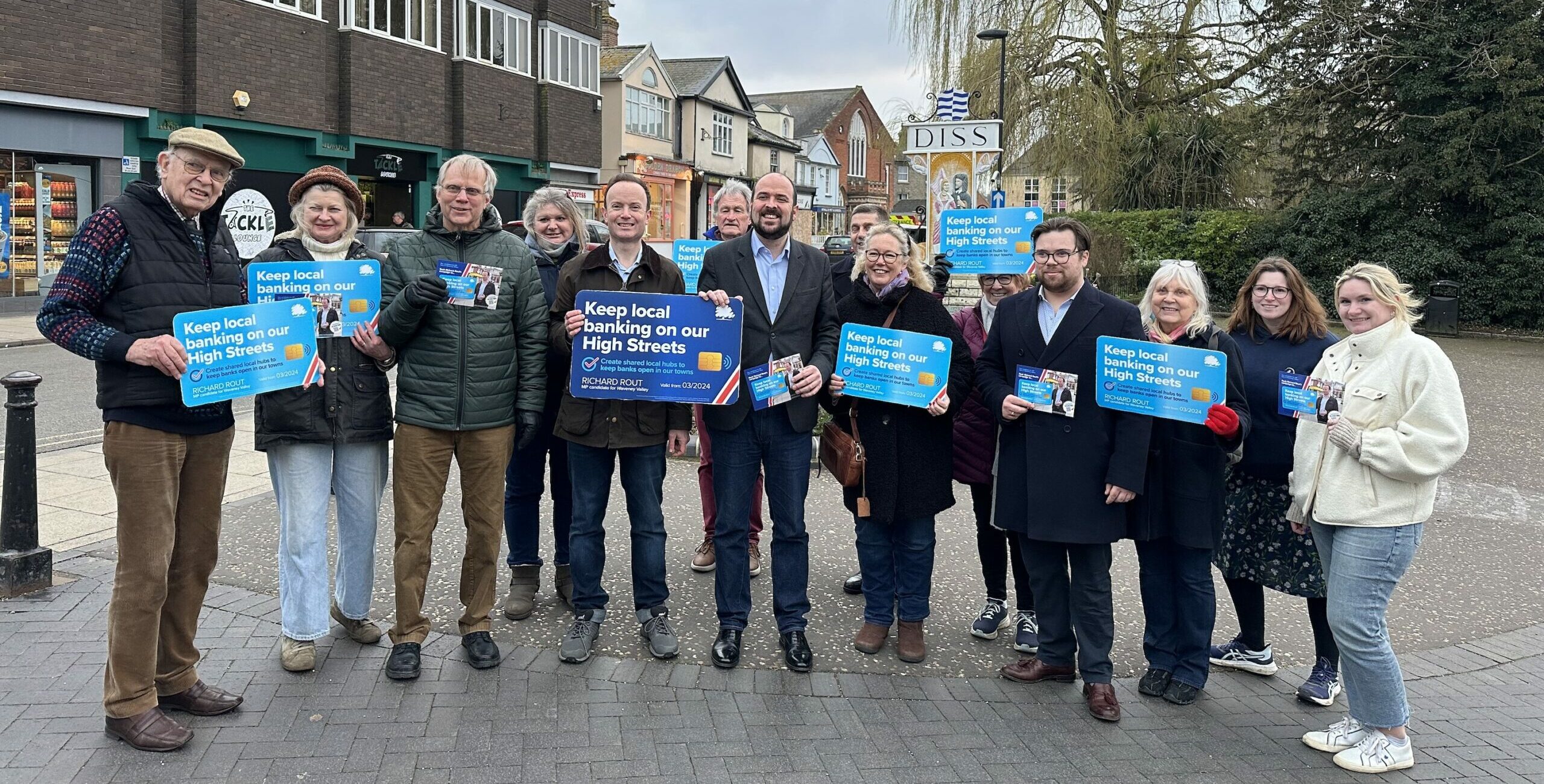
Local people, and businesses, across Waveney Valley need access to cash banking facilities. In all of our market towns it is getting harder to get access to cash and business banking. This is why I’ve launched a campaign for local banking hubs. These pull all of the major banks together under a single roof to provide that valuable access. This is a massive step up from mobile banking or pop-up facilities.
To make sure this campaign becomes a reality, I’ll be working with local councillors, local councils and banking providers. To stay updated on the campaign, sign up here.
Energy Security

Across the western world we have become overly reliant on imported energy, all too often from regimes – like Russia – who pose an existential threat to peace and democracy here and abroad. The weaponisation of energy by the likes of Putin only has one answer – energy independence for the United Kingdom.
I’ve led on negotiations with EDF over the £20bn+ Sizewell C plans and on our push back against vast new pylon runs. The scale of the challenge ahead of us and local communities is vast. To meet Government targets, we must go from 14GW of offshore wind to 50GW in the next seven years and – in terms of total national generation – from 108GW to 300GW by 2050. All this energy not only needs to be generated but it needs to be transmitted, often through rural and sensitive landscapes. In this context, the UK needs to build as many new grid connections in the next 7 years as it has in the last 30. The net result is that we sit on the precipice of a level of construction of infrastructure not seen in this country for generations.
We all want to see lower energy bills and we all want to cut off the purse strings to despotic regimes – home grown energy is the way to do this but in our haste to get there we must protect communities, businesses, agriculture and unique landscapes. My recent article on Conservative Home sets out more on this.
I have 5 years of experience dealing with large energy projects and have spoken on the national stage on energy issues. I led on the response to Sizewell C, a myriad of off-shore wind farms, our calls for an off-shore alternative to the vast new Norwich to Tilbury pylon run (formerly known as East Anglia Green) and our opposition to the huge new Sunnica Solar Farm on the Suffolk/Cambridgeshire border. The scale of these projects is not unique to East Anglia, with coastal communities across Great Britain impacted. I’v experience not only minimising the impacts of these schemes but also maximising local benefits and investment.
So what do I want to see going forward?
We need to push forward with Great British Nuclear, seizing the opportunities of Small Modular Reactors. We must prioritise brownfield sites and protect agricultural land from vast solar schemes like the proposed Sunnica scheme in East Cambridgeshire and West Suffolk, which would span over 2,000 acres. There is a role for solar on rooftops and along infrastructure corridors but not on prime agricultural land which is vital for food production.
We need a fair deal for communities; if there is no alternative to a scheme proceeding, those living near large energy projects should receive a discount on their energy bills, and those in energy poverty should benefit from new connections and property improvements. Importantly, parish councils need to be properly funded to respond to these schemes and not be dominated by developers.
We must compel developers to work together, not deliver schemes in a piecemeal way, and transmit as much energy as possible offshore rather than across our landscape. In this respect, I have led the charge for an offshore transmission grid which would render projects like the Norwich to Tilbury Pylons unnecessary.
Finally, we need to embrace hydrogen and the opportunities this brings to freight, industry and shipping.
Transport Infrastructure

Investing in our transport infrastructure grows the local economy.
The delayed upgrades to Ely rail junction has ramifications for Norfolk and Suffolk. This £500m scheme is essential to unlock our rail network, improve East West travel, reduce commuting times and encourage investment – generating an estimated £2.2bn for the local economy. Furthermore, alongside upgrades to Haughley junction, these improvements could remove 98,000 HGV and 376,000 car journeys from our roads every year. We need to keep up the pressure for this important scheme and continue to make the case for investment.
These improvements would drive investment, reduce commuting times, improve safety, reduce pollution and enhance lives across our area.
Food and Water Security
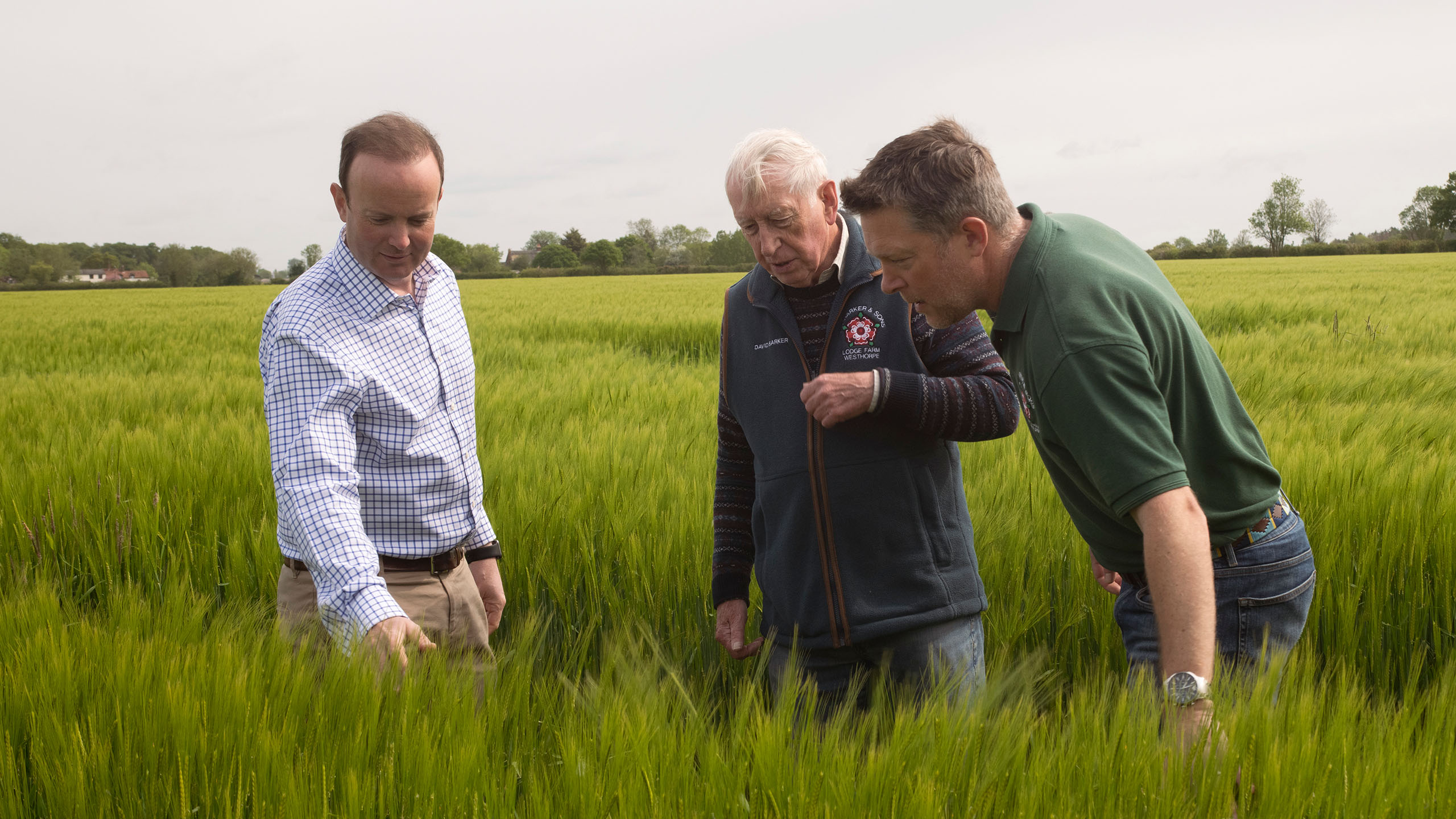
I grew up in a farming family and my grandfather would agree, were he still with us, when I say supermarkets should never be without food that can be produced by farmers here in the UK. But agriculture in our country needs greater support. First caused by the covid pandemic, then by the war in Ukraine, the cost of energy, animal feed, fertilisers and equipment have been driven to an historic high.
The East of England grows more than a quarter of England’s wheat and barley, nearly a third of all potatoes and well over half of the country’s sugar beet crop. We must support this vital sector.
As a region, East Anglia is classified as ‘seriously water stressed’ and unless urgent action is taken the region will face severe water shortages. The risk this poses to agriculture is more acute here than elsewhere – across the UK, on average, the agricultural sector uses 1% of water supplies but in East Anglia that sits at 16%. Already, in parts of Waveney Valley, there is a moratorium on new commercial water connections – meaning new businesses either cannot open or operate due to water shortages or must establish private water supplies. This will become more commonplace across the country unless we ensure the correct infrastructure is in place to support farming.
The agricultural and food and drink sectors deserve guarantees over this water supply and we must, at pace, bring forward plans for new pipelines, reservoirs and water recycling facilities. Alongside this, the sector must be incentivised to continue to innovate around water use and rewarded where it does.
British farmers and food producers are the finest in the world and the sector must be prioritised in all future trade deals, the establishment of the Trade and Agriculture Commission, the Food and Drink Export Council and placement at overseas embassies of agricultural attachés is a start but we must go further. We also need to further recognise the challenge of labour shortages and continually monitor and review the number of visas available through the Seasonal Agricultural Worker Scheme. In the first half of 2022 alone, £60m in fruit and vegetables were wasted due to workforce shortages. We must, of course, also encourage a homegrown workforce. There are too many people out of work in the UK who could be working but the agricultural sector must not be left in limbo and government must act with speed and flexibility to adjust the number of visas available each year while we re-establish a domestic workforce. Faced with the twin threats of a changing climate and energy and water scarcity, now is the time to double down on our support for farming.
Lower Taxes and Supporting Business
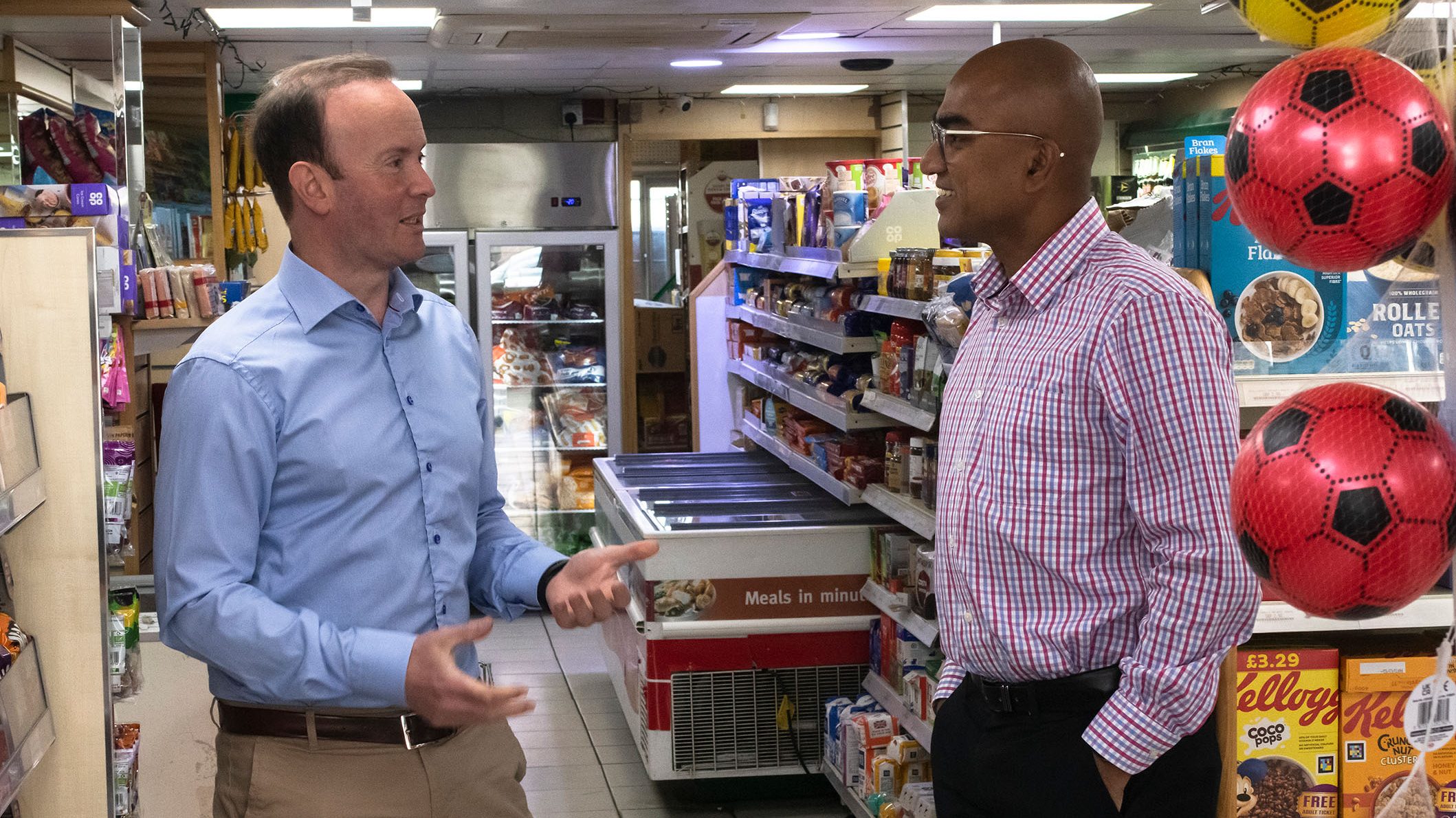
The tax burden in the United Kingdom is on course to hit a post-war high of 37.7% of GDP. The Covid-19 Pandemic and Putin’s invasion of Ukraine have both contributed to public sector debt approaching its highest level since 1962. This money must be repaid but in order to grow the economy we need a programme of responsible and affordable tax cuts. Lower taxes will grow the private sector and ultimately increase total tax yields. A few key areas need our immediate focus; the personal tax-free allowance, fuel duty, inheritance tax – principally the family inheritance limit, IR35 and business rates reform to enable us to level up our market town centres.
In 2015, the personal tax-free allowance was £10,600. Adjusted for inflation that would be £13,660 in 2023 but, instead, we have the tax-free allowance currently proposed to be frozen until 2026 at £12,570. As soon as practical, we need to raise the personal tax-free allowance to £13,660 and continue to increase it in line with inflation. This will have the biggest positive impact for those on low incomes. Fuel duty continues to be a regressive form of taxation that penalises motorists and hauliers, a cut would ease inflation, reduce pressure on households struggling with the cost of living and galvanise our haulage industry.
Inheritance tax is a further tax on assets which have already been taxed. Often referred to as a ‘death tax’ it can be planned for and avoided by the most wealthy. However, much of the UK’s middle class, who cannot afford such planning, is now being sucked into paying. As a proportion of national income, inheritance tax is a tiny fraction – representing 0.3% of all government income. Inheritance tax thresholds should be immediately increased to reflect increased property prices and inflation and its long-term abolition seriously considered.
Tax cuts can only be paid for if we grow the economy. The repeal of IR35 would remove significant tax liability risk from businesses engaging with contractors. UK business needs to be able to employ talent on a flexible basis and without unnecessary complexity. We need to immediately consult with businesses and tax professionals to devise a system that is fair for off-payroll works, fair to business and isn’t vulnerable to avoidance. Business rate reform, allowing more flexibility locally, would allow us to rejuvenate high streets and town centres. But we need to recognise that businesses are not just in towns or along main roads – behind so many hedges on so many rural roads are thriving and innovative businesses who need our support. We need to ensure they’ve the access to grid connections, fibre networks, 5G, water supply and – importantly – well managed highways.
Educational Funding & Attainment

Better Insulated Homes
Supporting Market Towns & Rural Services
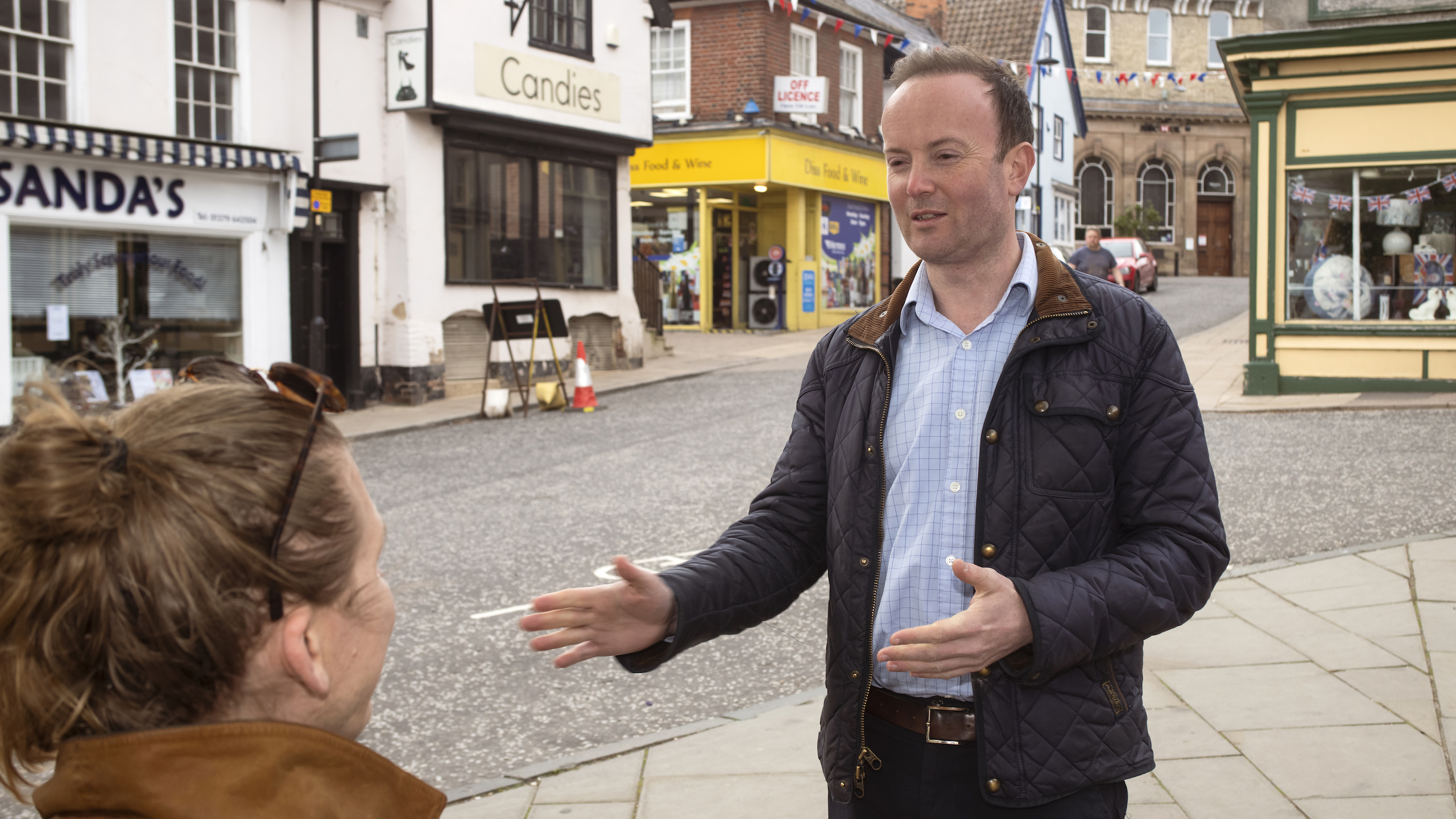
Here in Waveney Valley, our market towns of Diss, Eye, Harleston, Bungay and Halesworth are at the heart of our community and their high streets a vital lifeline for so many. Similarly, many of our larger villages are home to key services. As someone with a small business, I know just how hard owners have fought to bounce back after the pandemic and to deal with high inflation, compounded by the invasion of Ukraine. We need to keep our high streets vibrant and active and ensure vital services remain available. Elsewhere on this site I talk about the need for Business Rate reform but there is more we can do. An innovative approach to ensuring banking services remain available is essential. Mobile banking is not the answer we need, instead we need to look to small hubs near high streets that can house banking services.
To sustain these services and local businesses, we need more people living and working in our town centres. I’ve met with architects who are frustrated by how difficult it is to bring vacant space above and around our high streets back into use. We urgently need national planning reform to enable this and to ensure that when town centre development does occur, adequate parking is provided. Alongside banking, we need to ensure proper healthcare provision – access to GPs, dentists and outreach services. For example, it is challenging for many residents to be asked to travel miles from their surgery for a simple blood test. Equally, we are all aware of just how difficult it is to access an NHS dentist. We need firm voices at Westminster advocating for further changes to NHS contracts, ensuring we’re training enough UK dentists and pushing through reforms to allow greater flexibility around international registration.
